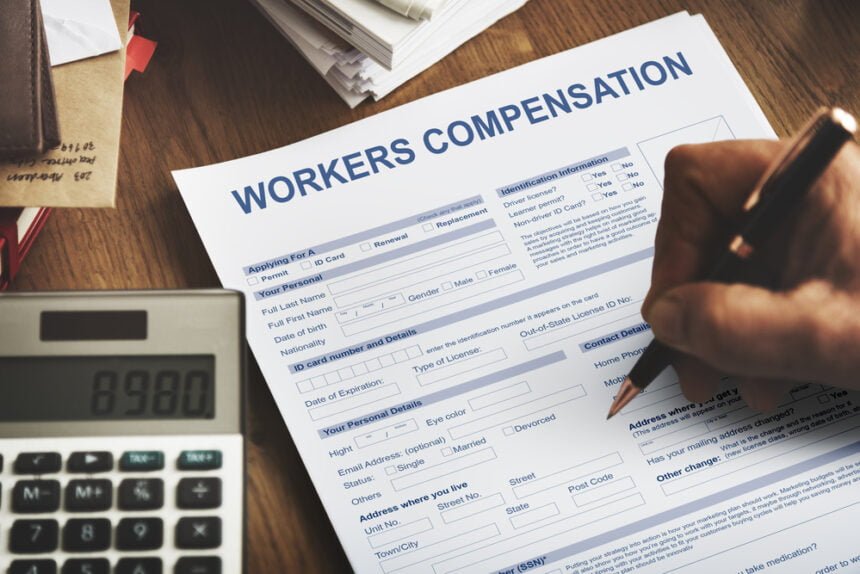The BLS reports that around 2.6 million people suffer workplace injuries each year. Figuring out how to deal with them can be difficult.
There are a lot of issues that you have to take into consideration when you are dealing with workplace injuries. One of the biggest is workplace compensation.
As a government-mandated program to provide benefits to workers who become injured or ill on the job (or as a result of the job), it’s not perfectly clear how it works. Workers’ compensation or workers’ comp applies to emotional trauma, pain and suffering, loss of future income, etc. apart from just direct compensation for medical bills.
It’s very important that you go to a specialist for this. You can easily find different attorneys specializing in different areas of workers’ comp laws. For example, the plan for workers comp settlement back injury will differ from the plan for assault. In fact, assaulted at work compensation works very differently from all other kinds.
That being said, there are a few things that we can help you with. We’re going to talk about the process as well as what’s covered in the compensation and more such information.
How Does Workers’ Comp Work?
Here’s a step-by-step breakdown of the whole process of workers’ compensation in the majority of cases and states:
- Know that only the employers are supposed to pay for workers’ compensation insurance. The employees are not expected to contribute toward it in any capacity.
- If an employee is injured or becomes ill as a direct result of their job, they can file a claim with their employer’s insurance carrier. This must apply to office workers as well as non-office workers.
- There is a state agency for this called the Workers’ Compensation Board. This is the agency that will be processing your claims and determining whether the insurer will reimburse you for cash benefits and/or any type of medical care. In other words, this board decides on the amounts payable.
- There’s also a workers compensation time limit that you must be aware of. You can’t file a claim after a particular amount of time has passed. This time differs from jurisdiction to jurisdiction.
- Typically, the standard approach in a workers’ compensation case is to not put blame on any party. No party is determined to be at fault in the case of most injuries or illnesses. In fact, the final amount that the claimant will receive is neither increased by the employer’s fault nor decreased by the claimant’s own carelessness or failure to adhere to any policies.
- The compensation may include partial salary repayment and coverage of medical costs.
- Once a claimant agrees to accept workers’ compensation benefits, they effectively lose the right to sue the employer for the damages. This only applies to the particular case.
- Workers’ comp is not the same as unemployment benefits or disability insurance.
What’s Covered?
Most injuries that occur on the job are covered by workers’ compensation insurance, including accidents and illnesses caused by exposure to work activities, materials, and equipment. Given below is a list of common issues that can lead to a workers’ compensation:
- Muscle sprains, strains, and tears
- Bone fractures
- Cuts, lacerations, and punctures
- Repetitive strain or stress (RSIs)
- Being struck by an object or equipment
- Falls
- Conditions or illnesses due to exposure to chemicals
At this point, we should make a note that injuries caused by events where the person responsible for your injury acted outside the scope of employment are not eligible to be covered by workers’ comp.
You should go with a personal injury lawyer in this case and pursue a civil suit against the person or persons separately.
How Do I File a Claim?
Though the fundamentals and details of these cases can differ greatly like the compensation for police officers injured on duty isn’t going to be processed the same way as a factory worker getting struck by malfunctioning equipment, the process to file the claim is pretty standard.
Here are the steps to filing a claim successfully:
- First, you should report the injury or the illness to your employer with proper medical backing. You should ideally notify your employer in writing and as soon as possible after the injury or the illness occurs. Keep a copy of this with you. If it’s an email, keep a screenshot that shows the date and time of sending.
- Get the forms that you need to file a claim. Normally, your employer is responsible for providing you with a workers’ comp form that you should fill out and submit. It asks for pretty standard information and isn’t difficult to fill.
- Complete the employee section of this claim form. Provide as much detail as possible. Discuss the event in detail and talk about the injury or illness with medical figures.
- Once filled out, return this form to the employer in person or by certified mail. Now, the employer will fill out its side and submit the claim to the insurance carrier. The insurance company will take its time to evaluate the claim and at this point, you should wait and follow up in the case of any delays. Once the claim has been evaluated, the insurance carrier will notify you of its decision.
- If the claim is approved, you will receive benefits like medical treatment and wage replacement.
It’s important to note that doing it all on your own is very different from getting the help of a specialized attorney who has helped people get the maximum compensation for their injuries.
In Conclusion
It is important to note that there are strict deadlines for filing a workers’ compensation claim, so it is important to act quickly. Keeping detailed records of all treatments and communication with your employer and insurance carrier is also very important.

